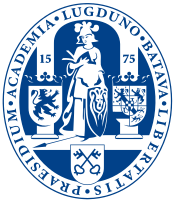

Brief statement/description of institution Founded in 1575, Leiden University is located in the student cities of Leiden and The Hague. It is one of Europe’s leading international research universities and this prominent position gives our graduates a leading edge in applying for academic posts as well as for functions outside academia. The University has approximately 30,000 students and 6,840 staff members (including the academic staff of the Leiden University Medical Center). Over 5,000 of our students come from more than 130 countries around the world. The University is comprised of seven faculties: Archaeology, Governance and Global Affairs, Humanities, Law, Medicine/LUMC (Leiden University Medical Center), Science, and Social and Behavioural Sciences. Leiden also has a Graduate School of Teaching (ICLON) and an Honours Academy. The University offers a varied range of 47 bachelor's (14 English-taught) and 80 master's programmes (70 English-taught), and highly diverse PhD tracks as well as various interdisciplinary minors. In addition, Leiden University has (in the Honours Academy) a Pre-University College, an Honours College, the Leiden Leadership Programme, and Leiden University College The Hague for excellent students. The University is focused on freedom of opinion and making an impact with study programmes and on-going research. Leiden University welcomes students to both our locations, and offers services specifically geared to international students. The Plexus and Beehive Student Centers, University Sports Center, as well as clubs and associations are available for students to feel at home quickly. Career and alumni services are also available for all students to plan their next steps in education or employment. Mission statement In the coming years, Leiden University aims to make major contributions to society in the areas of prosperity, well-being and culture. Talent and an environment for excellent research is indispensable to realising these ambitions. The University is therefore committed to both recruiting and developing talented individuals, from secondary school pupils and university students to young researchers and academics. Leiden University endorses inclusiveness and diversity. It is open to all those who wish to study or work here, and to develop their full potential. Leiden University strives for an internationally recognised position as a top-ranking research-intensive university within the European Higher Education and Research Area. Leiden already has a leading position in a great many fields, including natural sciences, life sciences, medicine, arts, social and behavioural sciences, international law, astronomy and non-Western languages. The University positions its degree programmes in an international context and guarantees their quality and standard in accordance with internationally accepted norms. Our graduates are therefore fully equipped to embark on both master’s and PhD degree programmes in the Netherlands and abroad. Our research is founded on a strong disciplinary basis across a broad range of scientific fields, within which our academics conduct both disciplinary and interdisciplinary research. Our researchers are closely involved with society and are inspired by scientific and societal questions about the future, which they translate into fundamental research questions. By concentrating our research in 5 themes and in 30 research institutes in both Leiden and The Hague, Leiden aims to foster an environment that promotes interdisciplinary collaboration. The themes are: Fundamentals of science; Health and wellbeing, Languages, cultures and societies, Law, politics and administration; Life Sciences. These themes offer ample opportunity for first-class fundamental research, but they also have strong links with key issues prevalent in contemporary societies. In the coming years, Leiden University will continue to do its utmost to facilitate excellent research and to stimulate multidisciplinary collaboration in these profile areas and other fields. Leiden University has joint multidisciplinary research centres and teaching programmes with Delft University of Technology and Erasmus University Rotterdam. The University had a vast array of external collaborations and is, for example, a partner in Medical Delta, the South Holland consortium of knowledge institutions, businesses and government in the field of life sciences and medical technology. Leiden University is a member of the League of European Research Universities (LERU), an alliance of leading research universities in Europe. The European University of Well-Being – EUniWell – unites seven Universities including Leiden and aims to foster well-being on the individual and societal level, grounded in research expertise, educational leadership and civic engagement. The University also works closely with other partners such as Leiden University Medical Center and Leiden’s Bio Science Park. With over 200 specialist businesses, this is the Netherlands’ largest knowledge cluster in the field of life sciences.
| Subject | Rank |
|---|
| Subject | Rank |
|---|---|
Public Administration | 2 |
Medical Technology | 10 |
Pharmacy & Pharmaceutical Sciences | 26 |
Political Sciences | 33 |
Physics | 51-75 |
Statistics | 51-75 |
Law | 51-75 |
Biological Sciences | 76-100 |